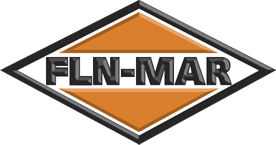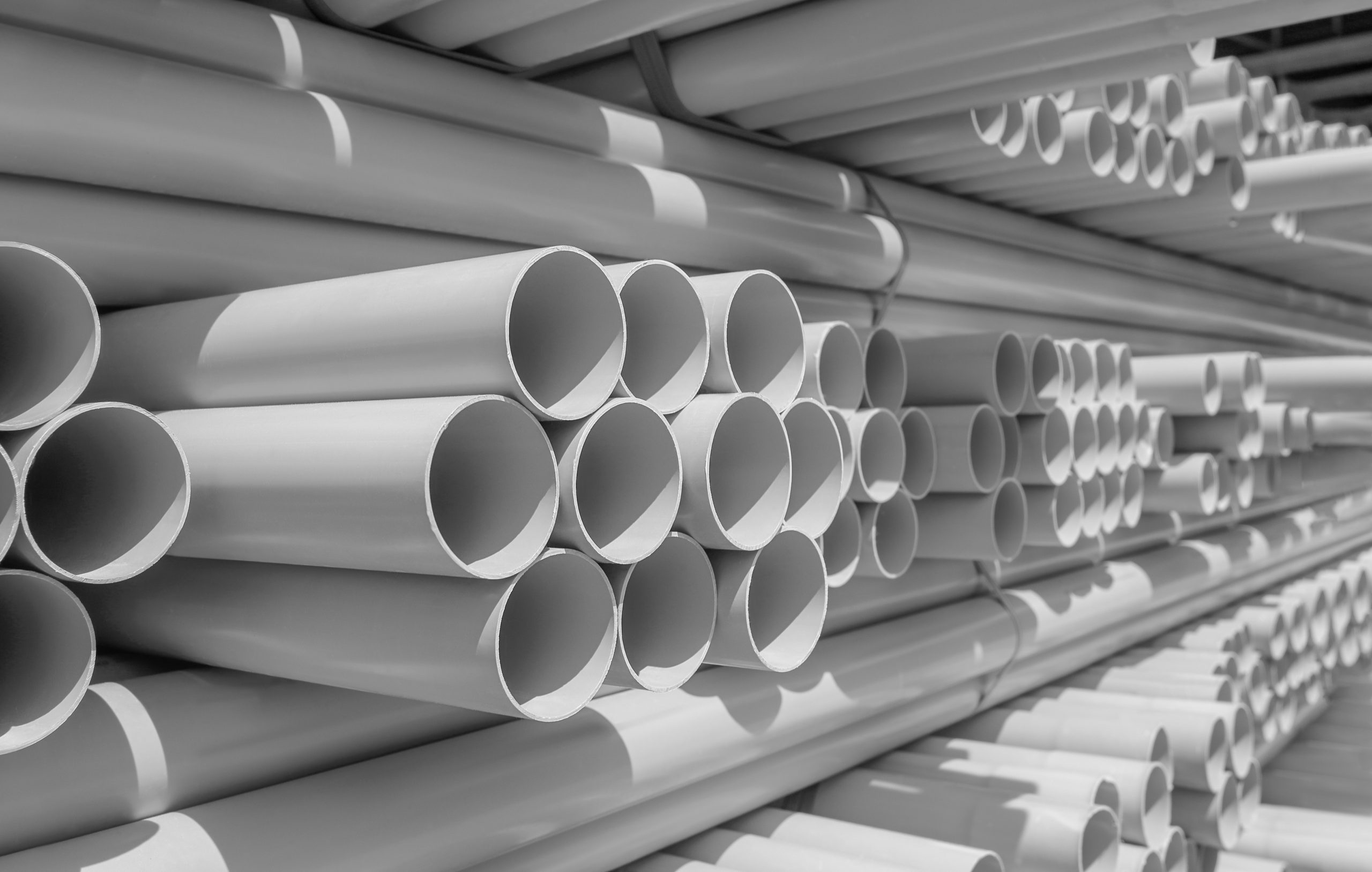PVC/CPVC
Polyvinyl Chloride, (PVC) is one of the most widely used plastic materials for piping and fittings. PVC is a thermoplastic material that is well-suited to a wide variety of pressure and non-pressure applications. PVC pipe is manufactured by extrusion and PVC fittings are made by injection molding or fabrication.
Lightweight and cost-effective, PVC is easy to install, resistant to corrosion and offers a long service life. It is highly resistant to acids, alkalis, alcohols, and many other corrosive agents. The range of joining options, including solvent welding, threaded and mechanical connections, enhance PVC popularity for its ease of installation.
Chlorinated Polyvinyl Chloride (CPVC) products such as pipe have a recommended maximum operating temperature of 200°F. CPVC operational temperatures can satisfactory range from 200°F to 230°F, given proper conditions of pressure and chemical suitability. These conditional extremes are often reserved, however, for unique situations that have been professionally engineered and receive stringent supervision.
Pipe Schedule
The thickness, or the “schedule” of the PVC pipe, is commonly available in two sizes: schedule 40 and schedule 80. Schedule 40 piping has thinner walls while schedule 80 provides a thicker wall that is better suited to heavy industrial or high-pressure chemical applications. PVC schedule 40 pipes and molded and fabricated PVC fittings are ideal for many applications including potable water systems, irrigation systems, gray water collection, vacuum lines, conduit and a variety of other lower pressure applications. Schedule 40 pipe will perform at temperatures up to 140°F (60°C). For best results, allow FLN-MAR to assist you ordering the appropriate PVC pipe or PVC fittings for the job at hand.
FLN-MAR will also supply accessories and custom dimensions and lengths to suit your purpose.

